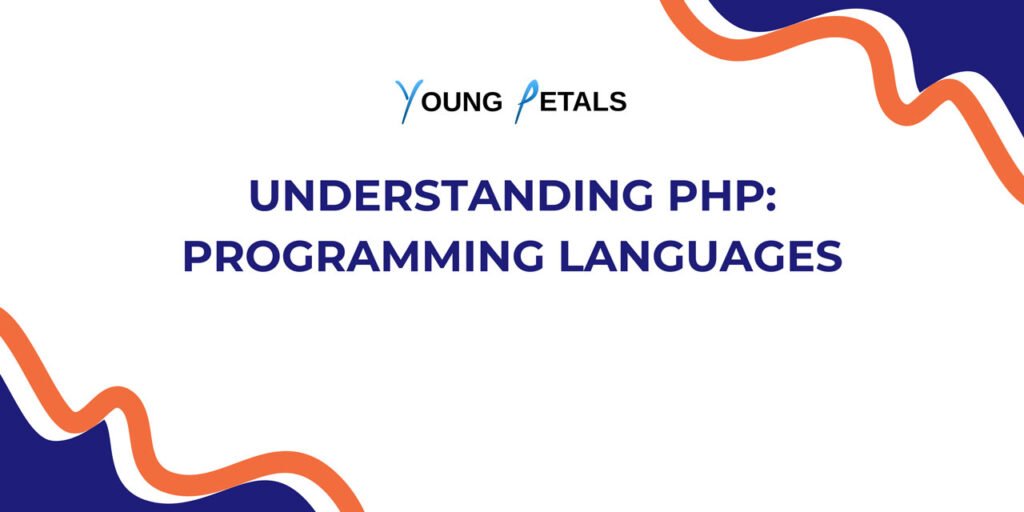Introduction
Modern PHP development demands elegant, maintainable database interaction patterns. Traditional SQL queries embedded directly in application code often lead to security vulnerabilities, poor readability, and maintenance challenges. A fluent query builder provides an object-oriented interface that transforms database operations into readable, chainable method calls while maintaining type safety and preventing SQL injection attacks.
This comprehensive guide demonstrates how to build a robust query builder from scratch, implementing core functionality that rivals established libraries while providing a deep understanding of the underlying principles.
Understanding the Fluent Interface Pattern
The fluent interface pattern, popularized by Martin Fowler, enables method chaining through consistent return of the object instance. This approach transforms complex operations into readable, natural language-like expressions.
Consider the difference between traditional SQL construction and a fluent interface:
// Traditional approach
$sql = "SELECT name, email FROM users WHERE age > 25 AND status = 'active' ORDER BY created_at DESC LIMIT 10";
// Fluent interface approach
$query = $builder
->select(['name', 'email'])
->from('users')
->where('age', '>', 25)
->where('status', '=', 'active')
->orderBy('created_at', 'DESC')
->limit(10);The fluent approach provides immediate benefits, including improved readability, IDE autocomplete support, and compile-time error detection.
Core Architecture and Design Principles
Foundation Class Structure
The query builder architecture centers around a main QueryBuilder class that maintains internal state and provides chainable methods for each SQL operation:
<?php
class QueryBuilder
{
private string $table = '';
private array $selects = ['*'];
private array $wheres = [];
private array $joins = [];
private array $orderBy = [];
private ?int $limitValue = null;
private ?int $offsetValue = null;
private PDO $connection;
public function __construct(PDO $connection)
{
$this->connection = $connection;
}
public function table(string $table): self
{
$this->table = $table;
return $this;
}
public function from(string $table): self
{
return $this->table($table);
}
}Select Statement Implementation
The select method accommodates both string and array parameters while maintaining flexibility for complex field specifications:
public function select($columns = ['*']): self
{
if (is_string($columns)) {
$columns = explode(',', $columns);
}
$this->selects = array_map('trim', $columns);
return $this;
}
public function addSelect($columns): self
{
if (is_string($columns)) {
$columns = explode(',', $columns);
}
$this->selects = array_merge($this->selects, array_map('trim', $columns));
return $this;
}Advanced Where Clause Handling
Basic Where Conditions
The where method forms the foundation of query filtering, supporting multiple operator types and parameter binding:
public function where(string $column, string $operator, $value): self
{
$this->wheres[] = [
'type' => 'basic',
'column' => $column,
'operator' => $operator,
'value' => $value,
'boolean' => 'AND'
];
return $this;
}
public function orWhere(string $column, string $operator, $value): self
{
$this->wheres[] = [
'type' => 'basic',
'column' => $column,
'operator' => $operator,
'value' => $value,
'boolean' => 'OR'
];
return $this;
}Advanced Where Methods
Complex queries require specialized where methods for common patterns:
public function whereIn(string $column, array $values): self
{
$this->wheres[] = [
'type' => 'in',
'column' => $column,
'values' => $values,
'boolean' => 'AND'
];
return $this;
}
public function whereBetween(string $column, $min, $max): self
{
$this->wheres[] = [
'type' => 'between',
'column' => $column,
'min' => $min,
'max' => $max,
'boolean' => 'AND'
];
return $this;
}
public function whereNull(string $column): self
{
$this->wheres[] = [
'type' => 'null',
'column' => $column,
'boolean' => 'AND'
];
return $this;
}
public function whereNotNull(string $column): self
{
$this->wheres[] = [
'type' => 'not_null',
'column' => $column,
'boolean' => 'AND'
];
return $this;
}Join Operations and Relationships
Basic Join Implementation
Join operations enable complex relational queries while maintaining the fluent interface:
public function join(string $table, string $first, string $operator, string $second, string $type = 'INNER'): self
{
$this->joins[] = [
'type' => $type,
'table' => $table,
'first' => $first,
'operator' => $operator,
'second' => $second
];
return $this;
}
public function leftJoin(string $table, string $first, string $operator, string $second): self
{
return $this->join($table, $first, $operator, $second, 'LEFT');
}
public function rightJoin(string $table, string $first, string $operator, string $second): self
{
return $this->join($table, $first, $operator, $second, 'RIGHT');
}
public function innerJoin(string $table, string $first, string $operator, string $second): self
{
return $this->join($table, $first, $operator, $second, 'INNER');
}Advanced Join Patterns
Complex applications often require sophisticated join conditions:
public function joinWhere(string $table, string $first, string $operator, string $second, string $whereColumn, string $whereOperator, $whereValue): self
{
$this->joins[] = [
'type' => 'INNER',
'table' => $table,
'first' => $first,
'operator' => $operator,
'second' => $second,
'where' => [
'column' => $whereColumn,
'operator' => $whereOperator,
'value' => $whereValue
]
];
return $this;
}Ordering and Pagination
Order By Implementation
Sorting functionality supports multiple columns and directions:
public function orderBy(string $column, string $direction = 'ASC'): self
{
$direction = strtoupper($direction);
if (!in_array($direction, ['ASC', 'DESC'])) {
throw new InvalidArgumentException('Order direction must be ASC or DESC');
}
$this->orderBy[] = [
'column' => $column,
'direction' => $direction
];
return $this;
}
public function orderByDesc(string $column): self
{
return $this->orderBy($column, 'DESC');
}
public function latest(string $column = 'created_at'): self
{
return $this->orderByDesc($column);
}
public function oldest(string $column = 'created_at'): self
{
return $this->orderBy($column, 'ASC');
}Pagination Support
Efficient pagination requires both limit and offset capabilities:
public function limit(int $limit): self
{
$this->limitValue = $limit;
return $this;
}
public function offset(int $offset): self
{
$this->offsetValue = $offset;
return $this;
}
public function take(int $limit): self
{
return $this->limit($limit);
}
public function skip(int $offset): self
{
return $this->offset($offset);
}
public function forPage(int $page, int $perPage = 15): self
{
return $this->offset(($page - 1) * $perPage)->limit($perPage);
}SQL Generation and Parameter Binding
Query Compilation
The core compilation method transforms the fluent interface into executable SQL:
public function toSql(): string
{
$sql = $this->compileSelect();
$sql .= $this->compileFrom();
$sql .= $this->compileJoins();
$sql .= $this->compileWheres();
$sql .= $this->compileOrders();
$sql .= $this->compileLimit();
return trim($sql);
}
private function compileSelect(): string
{
return 'SELECT ' . implode(', ', $this->selects);
}
private function compileFrom(): string
{
return $this->table ? ' FROM ' . $this->table : '';
}
private function compileJoins(): string
{
if (empty($this->joins)) {
return '';
}
$joins = [];
foreach ($this->joins as $join) {
$sql = " {$join['type']} JOIN {$join['table']} ON {$join['first']} {$join['operator']} {$join['second']}";
if (isset($join['where'])) {
$sql .= " AND {$join['where']['column']} {$join['where']['operator']} ?";
}
$joins[] = $sql;
}
return implode('', $joins);
}Where Clause Compilation
Complex where clause compilation handles multiple condition types:
private function compileWheres(): string
{
if (empty($this->wheres)) {
return '';
}
$sql = ' WHERE ';
$conditions = [];
foreach ($this->wheres as $index => $where) {
$boolean = $index === 0 ? '' : " {$where['boolean']} ";
switch ($where['type']) {
case 'basic':
$conditions[] = $boolean . "{$where['column']} {$where['operator']} ?";
break;
case 'in':
$placeholders = str_repeat('?,', count($where['values']) - 1) . '?';
$conditions[] = $boolean . "{$where['column']} IN ({$placeholders})";
break;
case 'between':
$conditions[] = $boolean . "{$where['column']} BETWEEN ? AND ?";
break;
case 'null':
$conditions[] = $boolean . "{$where['column']} IS NULL";
break;
case 'not_null':
$conditions[] = $boolean . "{$where['column']} IS NOT NULL";
break;
}
}
return $sql . implode('', $conditions);
}Parameter Binding and Security
Secure parameter binding prevents SQL injection while maintaining performance:
private function getBindings(): array
{
$bindings = [];
foreach ($this->wheres as $where) {
switch ($where['type']) {
case 'basic':
$bindings[] = $where['value'];
break;
case 'in':
$bindings = array_merge($bindings, $where['values']);
break;
case 'between':
$bindings[] = $where['min'];
$bindings[] = $where['max'];
break;
}
}
// Add join where bindings
foreach ($this->joins as $join) {
if (isset($join['where'])) {
$bindings[] = $join['where']['value'];
}
}
return $bindings;
}Query Execution and Result Handling
Execution Methods
The query builder provides multiple execution methods for different use cases:
public function get(): array
{
$sql = $this->toSql();
$bindings = $this->getBindings();
$statement = $this->connection->prepare($sql);
$statement->execute($bindings);
return $statement->fetchAll(PDO::FETCH_ASSOC);
}
public function first(): ?array
{
$results = $this->limit(1)->get();
return empty($results) ? null : $results[0];
}
public function count(): int
{
$original = $this->selects;
$this->selects = ['COUNT(*) as count'];
$result = $this->first();
$this->selects = $original;
return $result ? (int)$result['count'] : 0;
}
public function exists(): bool
{
return $this->count() > 0;
}
public function pluck(string $column): array
{
$this->select([$column]);
$results = $this->get();
return array_column($results, $column);
}Insert, Update, and Delete Operations
Complete CRUD functionality extends the query builder beyond selection:
public function insert(array $data): bool
{
$columns = array_keys($data);
$placeholders = str_repeat('?,', count($data) - 1) . '?';
$sql = "INSERT INTO {$this->table} (" . implode(', ', $columns) . ") VALUES ({$placeholders})";
$statement = $this->connection->prepare($sql);
return $statement->execute(array_values($data));
}
public function update(array $data): int
{
$sets = [];
foreach (array_keys($data) as $column) {
$sets[] = "{$column} = ?";
}
$sql = "UPDATE {$this->table} SET " . implode(', ', $sets);
$sql .= $this->compileWheres();
$bindings = array_merge(array_values($data), $this->getBindings());
$statement = $this->connection->prepare($sql);
$statement->execute($bindings);
return $statement->rowCount();
}
public function delete(): int
{
$sql = "DELETE FROM {$this->table}";
$sql .= $this->compileWheres();
$statement = $this->connection->prepare($sql);
$statement->execute($this->getBindings());
return $statement->rowCount();
}Advanced Features and Optimization
Subquery Support
Complex applications require subquery capabilities for advanced filtering and data retrieval:
public function whereExists(callable $callback): self
{
$subquery = new static($this->connection);
$callback($subquery);
$this->wheres[] = [
'type' => 'exists',
'query' => $subquery,
'boolean' => 'AND'
];
return $this;
}
public function whereIn(string $column, $values): self
{
if ($values instanceof QueryBuilder) {
$this->wheres[] = [
'type' => 'in_subquery',
'column' => $column,
'query' => $values,
'boolean' => 'AND'
];
} else {
$this->wheres[] = [
'type' => 'in',
'column' => $column,
'values' => $values,
'boolean' => 'AND'
];
}
return $this;
}Aggregation Functions
Database aggregation functions integrate seamlessly with the fluent interface:
public function sum(string $column): float
{
$original = $this->selects;
$this->selects = ["SUM({$column}) as sum"];
$result = $this->first();
$this->selects = $original;
return $result ? (float)$result['sum'] : 0.0;
}
public function avg(string $column): float
{
$original = $this->selects;
$this->selects = ["AVG({$column}) as avg"];
$result = $this->first();
$this->selects = $original;
return $result ? (float)$result['avg'] : 0.0;
}
public function max(string $column)
{
$original = $this->selects;
$this->selects = ["MAX({$column}) as max"];
$result = $this->first();
$this->selects = $original;
return $result ? $result['max'] : null;
}
public function min(string $column)
{
$original = $this->selects;
$this->selects = ["MIN({$column}) as min"];
$result = $this->first();
$this->selects = $original;
return $result ? $result['min'] : null;
}Practical Implementation Examples
Basic Query Operations
These examples demonstrate common usage patterns that showcase the query builder’s versatility:
// Database connection setup
$pdo = new PDO('mysql:host=localhost;dbname=example', $username, $password);
$builder = new QueryBuilder($pdo);
// Simple selection with conditions
$users = $builder
->table('users')
->select(['id', 'name', 'email'])
->where('status', '=', 'active')
->where('age', '>=', 18)
->orderBy('created_at', 'DESC')
->limit(20)
->get();
// Complex filtering with multiple conditions
$premiumUsers = $builder
->table('users')
->where('subscription_type', '=', 'premium')
->whereIn('country', ['US', 'CA', 'UK'])
->whereBetween('last_login', '2024-01-01', '2024-12-31')
->whereNotNull('email_verified_at')
->get();Advanced Relationship Queries
Join operations enable sophisticated data retrieval across related tables:
// Users with their order counts
$usersWithOrders = $builder
->table('users')
->select(['users.name', 'users.email', 'COUNT(orders.id) as order_count'])
->leftJoin('orders', 'users.id', '=', 'orders.user_id')
->where('users.status', '=', 'active')
->groupBy(['users.id', 'users.name', 'users.email'])
->having('order_count', '>', 0)
->orderBy('order_count', 'DESC')
->get();
// Complex multi-table relationships
$productAnalytics = $builder
->table('products')
->select([
'products.name',
'categories.name as category_name',
'AVG(reviews.rating) as avg_rating',
'COUNT(order_items.id) as total_sold'
])
->join('categories', 'products.category_id', '=', 'categories.id')
->leftJoin('reviews', 'products.id', '=', 'reviews.product_id')
->leftJoin('order_items', 'products.id', '=', 'order_items.product_id')
->where('products.status', '=', 'published')
->groupBy(['products.id', 'products.name', 'categories.name'])
->having('avg_rating', '>=', 4.0)
->orderBy('total_sold', 'DESC')
->limit(50)
->get();Error Handling and Validation
Input Validation
Robust input validation prevents common errors and enhances developer experience:
private function validateOperator(string $operator): bool
{
$validOperators = ['=', '!=', '<>', '<', '>', '<=', '>=', 'LIKE', 'NOT LIKE'];
return in_array(strtoupper($operator), $validOperators);
}
public function where(string $column, string $operator, $value): self
{
if (!$this->validateOperator($operator)) {
throw new InvalidArgumentException("Invalid operator: {$operator}");
}
if (empty(trim($column))) {
throw new InvalidArgumentException('Column name cannot be empty');
}
$this->wheres[] = [
'type' => 'basic',
'column' => trim($column),
'operator' => $operator,
'value' => $value,
'boolean' => 'AND'
];
return $this;
}Exception Handling
Comprehensive error handling improves debugging and development workflow:
public function get(): array
{
try {
$sql = $this->toSql();
$bindings = $this->getBindings();
$statement = $this->connection->prepare($sql);
$statement->execute($bindings);
return $statement->fetchAll(PDO::FETCH_ASSOC);
} catch (PDOException $e) {
throw new QueryException("Query execution failed: " . $e->getMessage(), 0, $e);
}
}
class QueryException extends Exception
{
public function __construct(string $message, int $code = 0, ?Throwable $previous = null)
{
parent::__construct($message, $code, $previous);
}
}Performance Optimization Strategies
Query Caching
Implementing query result caching significantly improves application performance:
private array $cache = [];
private bool $cacheEnabled = false;
private int $cacheTtl = 3600;
public function cache(int $ttl = 3600): self
{
$this->cacheEnabled = true;
$this->cacheTtl = $ttl;
return $this;
}
public function get(): array
{
if ($this->cacheEnabled) {
$cacheKey = md5($this->toSql() . serialize($this->getBindings()));
if (isset($this->cache[$cacheKey])) {
$cached = $this->cache[$cacheKey];
if (time() - $cached['time'] < $this->cacheTtl) {
return $cached['data'];
}
}
}
$results = $this->executeQuery();
if ($this->cacheEnabled) {
$this->cache[$cacheKey] = [
'data' => $results,
'time' => time()
];
}
return $results;
}Connection Pooling
Database connection management optimizes resource utilization:
class ConnectionManager
{
private static array $connections = [];
private static array $config = [];
public static function setConfig(array $config): void
{
self::$config = $config;
}
public static function getConnection(string $name = 'default'): PDO
{
if (!isset(self::$connections[$name])) {
$config = self::$config[$name] ?? self::$config['default'];
$dsn = "mysql:host={$config['host']};dbname={$config['database']}";
self::$connections[$name] = new PDO($dsn, $config['username'], $config['password'], [
PDO::ATTR_ERRMODE => PDO::ERRMODE_EXCEPTION,
PDO::ATTR_DEFAULT_FETCH_MODE => PDO::FETCH_ASSOC,
PDO::ATTR_PERSISTENT => true
]);
}
return self::$connections[$name];
}
}Testing and Quality Assurance
Unit Testing Framework
Comprehensive testing ensures query builder reliability:
use PHPUnit\Framework\TestCase;
class QueryBuilderTest extends TestCase
{
private QueryBuilder $builder;
private PDO $connection;
protected function setUp(): void
{
$this->connection = new PDO('sqlite::memory:');
$this->builder = new QueryBuilder($this->connection);
$this->connection->exec("
CREATE TABLE users (
id INTEGER PRIMARY KEY,
name TEXT,
email TEXT,
status TEXT,
created_at TEXT
)
");
}
public function testBasicSelect(): void
{
$sql = $this->builder
->table('users')
->select(['name', 'email'])
->toSql();
$this->assertEquals('SELECT name, email FROM users', $sql);
}
public function testWhereConditions(): void
{
$sql = $this->builder
->table('users')
->where('status', '=', 'active')
->where('age', '>', 18)
->toSql();
$expected = 'SELECT * FROM users WHERE status = ? AND age > ?';
$this->assertEquals($expected, $sql);
}
public function testJoinOperations(): void
{
$sql = $this->builder
->table('users')
->join('profiles', 'users.id', '=', 'profiles.user_id')
->where('users.status', '=', 'active')
->toSql();
$expected = 'SELECT * FROM users INNER JOIN profiles ON users.id = profiles.user_id WHERE users.status = ?';
$this->assertEquals($expected, $sql);
}
}Integration Patterns and Best Practices
Repository Pattern Integration
The query builder integrates seamlessly with repository patterns for clean architecture:
abstract class BaseRepository
{
protected QueryBuilder $query;
protected string $table;
public function __construct(PDO $connection)
{
$this->query = new QueryBuilder($connection);
}
public function find(int $id): ?array
{
return $this->query
->table($this->table)
->where('id', '=', $id)
->first();
}
public function findBy(array $criteria): array
{
$query = $this->query->table($this->table);
foreach ($criteria as $column => $value) {
$query->where($column, '=', $value);
}
return $query->get();
}
}
class UserRepository extends BaseRepository
{
protected string $table = 'users';
public function findActiveUsers(): array
{
return $this->query
->table($this->table)
->where('status', '=', 'active')
->where('email_verified_at', 'IS NOT', null)
->orderBy('created_at', 'DESC')
->get();
}
public function findUsersByRole(string $role): array
{
return $this->query
->table($this->table)
->join('user_roles', 'users.id', '=', 'user_roles.user_id')
->join('roles', 'user_roles.role_id', '=', 'roles.id')
->where('roles.name', '=', $role)
->select(['users.*', 'roles.name as role_name'])
->get();
}
}Service Layer Implementation
Service classes leverage the query builder for business logic implementation:
class UserService
{
private UserRepository $userRepository;
private QueryBuilder $queryBuilder;
public function __construct(UserRepository $userRepository, QueryBuilder $queryBuilder)
{
$this->userRepository = $userRepository;
$this->queryBuilder = $queryBuilder;
}
public function getActiveUsersByCountry(string $country, int $page = 1, int $perPage = 20): array
{
return $this->queryBuilder
->table('users')
->where('status', '=', 'active')
->where('country', '=', $country)
->whereNotNull('email_verified_at')
->orderBy('last_login_at', 'DESC')
->forPage($page, $perPage)
->get();
}
public function getUserAnalytics(int $userId): array
{
$orderStats = $this->queryBuilder
->table('orders')
->where('user_id', '=', $userId)
->where('status', '=', 'completed')
->select([
'COUNT(*) as total_orders',
'SUM(total_amount) as total_spent',
'AVG(total_amount) as avg_order_value',
'MAX(created_at) as last_order_date'
])
->first();
return $orderStats ?: [
'total_orders' => 0,
'total_spent' => 0.0,
'avg_order_value' => 0.0,
'last_order_date' => null
];
}
}Security Considerations and Best Practices
SQL Injection Prevention
Parameter binding provides the primary defense against SQL injection attacks:
// SECURE: Using parameter binding
$users = $builder
->table('users')
->where('email', '=', $userInput)
->get();
// INSECURE: Never do this
// $sql = "SELECT * FROM users WHERE email = '$userInput'";Input Sanitization
Additional validation layers enhance security posture:
private function sanitizeColumn(string $column): string
{
// Remove any characters that aren't alphanumeric, underscore, or dot
$sanitized = preg_replace('/[^a-zA-Z0-9_.]/', '', $column);
if (empty($sanitized)) {
throw new InvalidArgumentException('Invalid column name');
}
return $sanitized;
}
private function validateTableName(string $table): string
{
$sanitized = preg_replace('/[^a-zA-Z0-9_]/', '', $table);
if (empty($sanitized) || strlen($sanitized) > 64) {
throw new InvalidArgumentException('Invalid table name');
}
return $sanitized;
}Performance Monitoring and Debugging
Query Logging
Development and debugging benefit from comprehensive query logging:
class QueryLogger
{
private array $queries = [];
private bool $enabled = false;
public function enable(): void
{
$this->enabled = true;
}
public function log(string $sql, array $bindings, float $executionTime): void
{
if (!$this->enabled) {
return;
}
$this->queries[] = [
'sql' => $sql,
'bindings' => $bindings,
'time' => $executionTime,
'timestamp' => microtime(true)
];
}
public function getQueries(): array
{
return $this->queries;
}
public function getTotalTime(): float
{
return array_sum(array_column($this->queries, 'time'));
}
}Integration with the query builder enables automatic logging:
public function get(): array
{
$startTime = microtime(true);
try {
$sql = $this->toSql();
$bindings = $this->getBindings();
$statement = $this->connection->prepare($sql);
$statement->execute($bindings);
$results = $statement->fetchAll(PDO::FETCH_ASSOC);
$executionTime = microtime(true) - $startTime;
$this->logger?->log($sql, $bindings, $executionTime);
return $results;
} catch (PDOException $e) {
$executionTime = microtime(true) - $startTime;
$this->logger?->log($this->toSql(), $this->getBindings(), $executionTime);
throw new QueryException("Query execution failed: " . $e->getMessage(), 0, $e);
}
}Real-World Usage Scenarios
E-commerce Product Filtering
E-commerce applications require complex filtering capabilities that the query builder handles elegantly:
class ProductService
{
private QueryBuilder $builder;
public function searchProducts(array $filters): array
{
$query = $this->builder
->table('products')
->select([
'products.*',
'categories.name as category_name',
'brands.name as brand_name',
'AVG(reviews.rating) as avg_rating',
'COUNT(reviews.id) as review_count'
])
->join('categories', 'products.category_id', '=', 'categories.id')
->join('brands', 'products.brand_id', '=', 'brands.id')
->leftJoin('reviews', 'products.id', '=', 'reviews.product_id')
->where('products.status', '=', 'active');
if (!empty($filters['search'])) {
$query->where('products.name', 'LIKE', '%' . $filters['search'] . '%');
}
if (!empty($filters['category_ids'])) {
$query->whereIn('products.category_id', $filters['category_ids']);
}
if (!empty($filters['price_min'])) {
$query->where('products.price', '>=', $filters['price_min']);
}
if (!empty($filters['price_max'])) {
$query->where('products.price', '<=', $filters['price_max']);
}
if (!empty($filters['in_stock'])) {
$query->where('products.stock_quantity', '>', 0);
}
return $query
->groupBy(['products.id'])
->having('avg_rating', '>=', $filters['min_rating'] ?? 0)
->orderBy($filters['sort_by'] ?? 'products.created_at', $filters['sort_direction'] ?? 'DESC')
->forPage($filters['page'] ?? 1, $filters['per_page'] ?? 20)
->get();
}
}
Analytics and Reporting
Complex analytical queries demonstrate the builder’s power for business intelligence:
class AnalyticsService
{
private QueryBuilder $builder;
public function getMonthlyRevenue(int $year): array
{
return $this->builder
->table('orders')
->select([
'MONTH(created_at) as month',
'YEAR(created_at) as year',
'COUNT(*) as order_count',
'SUM(total_amount) as revenue',
'AVG(total_amount) as avg_order_value'
])
->where('status', '=', 'completed')
->where('YEAR(created_at)', '=', $year)
->groupBy(['YEAR(created_at)', 'MONTH(created_at)'])
->orderBy('month', 'ASC')
->get();
}
public function getTopCustomers(int $limit = 10): array
{
return $this->builder
->table('users')
->select([
'users.id',
'users.name',
'users.email',
'COUNT(orders.id) as total_orders',
'SUM(orders.total_amount) as total_spent',
'MAX(orders.created_at) as last_order_date'
])
->join('orders', 'users.id', '=', 'orders.user_id')
->where('orders.status', '=', 'completed')
->groupBy(['users.id', 'users.name', 'users.email'])
->orderBy('total_spent', 'DESC')
->limit($limit)
->get();
}
}
Extension and Customization
Custom Method Registration
The query builder supports dynamic method registration for domain-specific functionality:
class ExtendableQueryBuilder extends QueryBuilder
{
private array $macros = [];
public function macro(string $name, callable $callback): void
{
$this->macros[$name] = $callback;
}
public function __call(string $method, array $parameters)
{
if (isset($this->macros[$method])) {
return call_user_func_array($this->macros[$method]->bindTo($this), $parameters);
}
throw new BadMethodCallException("Method {$method} does not exist");
}
}
// Usage example
$builder->macro('whereActive', function() {
return $this->where('status', '=', 'active');
});
$builder->macro('withTrashed', function() {
return $this->whereNull('deleted_at');
});
// Now you can use custom methods
$activeUsers = $builder
->table('users')
->whereActive()
->withTrashed()
->get();
Plugin Architecture
A plugin system enables modular functionality extension:
interface QueryBuilderPlugin
{
public function register(QueryBuilder $builder): void;
}
class SoftDeletePlugin implements QueryBuilderPlugin
{
public function register(QueryBuilder $builder): void
{
$builder->macro('withTrashed', function() {
// Remove any existing soft delete constraints
return $this;
});
$builder->macro('onlyTrashed', function() {
return $this->whereNotNull('deleted_at');
});
$builder->macro('withoutTrashed', function() {
return $this->whereNull('deleted_at');
});
}
}
class TimestampPlugin implements QueryBuilderPlugin
{
public function register(QueryBuilder $builder): void
{
$builder->macro('recent', function(int $days = 7) {
$date = date('Y-m-d H:i:s', strtotime("-{$days} days"));
return $this->where('created_at', '>=', $date);
});
$builder->macro('today', function() {
return $this->whereBetween('created_at',
date('Y-m-d 00:00:00'),
date('Y-m-d 23:59:59')
);
});
}
}
Migration and Deployment Strategies
Database Schema Integration
Query builders work effectively with migration systems for database evolution:
class Migration
{
private QueryBuilder $builder;
public function createUsersTable(): void
{
$sql = "
CREATE TABLE users (
id INT AUTO_INCREMENT PRIMARY KEY,
name VARCHAR(255) NOT NULL,
email VARCHAR(255) UNIQUE NOT NULL,
password VARCHAR(255) NOT NULL,
status ENUM('active', 'inactive', 'suspended') DEFAULT 'active',
email_verified_at TIMESTAMP NULL,
created_at TIMESTAMP DEFAULT CURRENT_TIMESTAMP,
updated_at TIMESTAMP DEFAULT CURRENT_TIMESTAMP ON UPDATE CURRENT_TIMESTAMP
)
";
$this->builder->getConnection()->exec($sql);
}
public function seedDefaultData(): void
{
$users = [
['name' => 'Admin User', 'email' => 'admin@example.com', 'status' => 'active'],
['name' => 'Test User', 'email' => 'test@example.com', 'status' => 'active'],
];
foreach ($users as $userData) {
$this->builder
->table('users')
->insert($userData);
}
}
}
Configuration Management
Environment-specific configuration ensures proper deployment across different stages:
class QueryBuilderConfig
{
public static function getDatabaseConfig(string $environment): array
{
$configs = [
'development' => [
'host' => 'localhost',
'database' => 'myapp_dev',
'username' => 'dev_user',
'password' => 'dev_password',
'options' => [
PDO::ATTR_ERRMODE => PDO::ERRMODE_EXCEPTION,
PDO::MYSQL_ATTR_INIT_COMMAND => "SET NAMES utf8mb4"
]
],
'production' => [
'host' => $_ENV['DB_HOST'],
'database' => $_ENV['DB_NAME'],
'username' => $_ENV['DB_USER'],
'password' => $_ENV['DB_PASS'],
'options' => [
PDO::ATTR_ERRMODE => PDO::ERRMODE_EXCEPTION,
PDO::ATTR_PERSISTENT => true,
PDO::MYSQL_ATTR_INIT_COMMAND => "SET NAMES utf8mb4"
]
]
];
return $configs[$environment] ?? $configs['development'];
}
}
Key Benefits and Advantages
Development Productivity
Fluent query builders significantly enhance developer productivity through multiple mechanisms:
- Reduced Context Switching: Developers remain within PHP syntax rather than alternating between PHP and SQL
- IDE Support: Method chaining enables autocomplete, parameter hints, and static analysis
- Compile-Time Validation: Type hints and method signatures catch errors before runtime
- Consistent API: Uniform method naming and parameter patterns reduce cognitive load
Maintenance and Refactoring
Long-term codebase health improves through structured query construction:
- Centralized Query Logic: Database interaction patterns consolidate in reusable methods
- Easy Modification: Changing query conditions requires minimal code changes
- Version Control Friendly: Method chains produce cleaner diffs than multi-line SQL strings
- Testing Isolation: Individual query components can be tested independently
Security and Reliability
Built-in security features protect against common vulnerabilities:
- Automatic Parameter Binding: All user input gets properly escaped and bound
- Input Validation: Method parameters receive validation before query construction
- SQL Injection Prevention: Parameterized queries eliminate injection attack vectors
- Error Handling: Structured exception handling provides meaningful debugging information
Common Pitfalls and Solutions
Performance Considerations
While fluent interfaces provide excellent developer experience, certain patterns can impact performance:
Problem: Excessive method chaining creating unnecessary object allocations Solution: Implement object pooling or consider batch operations for high-frequency queries
Problem: N+1 query problems when loading related data Solution: Implement eager loading capabilities through join optimization
public function with(array $relations): self
{
foreach ($relations as $relation) {
$this->eagerLoad($relation);
}
return $this;
}
private function eagerLoad(string $relation): void
{
// Implementation depends on relationship definitions
// This is a simplified example
switch ($relation) {
case 'orders':
$this->leftJoin('orders', 'users.id', '=', 'orders.user_id');
break;
}
}
Memory Management
Large result sets require careful memory management:
public function chunk(int $count, callable $callback): void
{
$page = 1;
do {
$results = $this->forPage($page, $count)->get();
if (empty($results)) {
break;
}
$callback($results);
$page++;
} while (count($results) === $count);
}
// Usage for processing large datasets
$builder
->table('large_table')
->chunk(1000, function($records) {
foreach ($records as $record) {
// Process individual record
processRecord($record);
}
});
Conclusion
A well-designed, fluent query builder transforms database interaction from a necessary complexity into an elegant, expressive component of application architecture. The implementation demonstrated in this guide provides a solid foundation that can be extended and customized for specific application requirements.
The key to successful query builder adoption lies in balancing abstraction with performance, providing developer-friendly interfaces without sacrificing the power and flexibility of underlying SQL capabilities. As applications grow in complexity, the structured approach of fluent query builders becomes increasingly valuable for maintaining code quality and developer productivity.
Future enhancements might include schema introspection, automatic relationship detection, query optimization hints, and integration with modern PHP frameworks. The foundational patterns established here provide a robust starting point for such advanced features.
Remember that while query builders excel at common database operations, complex analytical queries or database-specific features may still require raw SQL. The best implementations provide escape hatches for such scenarios while maintaining the fluent interface for standard operations.




